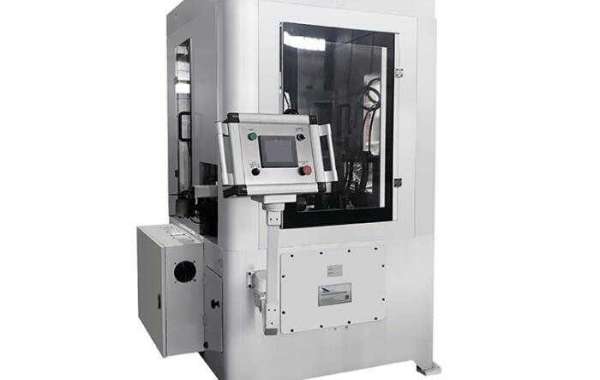The process of can making machine:
- All empty cans with internal paint are used to improve the corrosion resistance of metal packaging iron cans. At the same time, the electrochemical effect of metal can dissolve a small amount of iron in the metal iron box.
- Making stamping and forming. That is, the punches of the punching machine are used to punch the flat plate into the cylindrical die so that the flat metal plate is deformed into a round iron can. The diameter of the iron box formed after the initial stamping can be reduced by applying a re-stamping process.
- Cut the iron sheet into a rectangular iron sheet, roll the blank into a cylindrical shape, and weld the joints at both ends longitudinally to form a cylindrical shape. The head of the cylinder and the round end cap are sealed by a mechanical method, and the other end is loaded into the finished can lid to form a packaging tin. The container is composed of three parts: the body, the lid and the bottom, so it is called Three-piece cans. Normal iron cans use three-piece cans, and aluminum cans use two-piece can technology. The patch uses offset printing technology. Such three-piece cans are not easy to hold candles. It is easy to leak. If you must use it, it is recommended to use the coating glue to prevent wax leakage. Usually such three-piece cans also need to prevent rust on the outer surface, and printing is still required. When making a three-piece can, pay attention to: cut corners and cuts before the end folding process; in the soldering process, wipe off the solder at the soldering place, and flanging after cooling, the can body is completed.
In addition, the manufacturing requirements of punching iron cans: For dry beverage cans, external surface coating, printing, internal surface coating, and flange forming and closing of the open end must be carried out. For the food tin box during the cleaning process, the outer surface coating, the open end flange forming, the cylinder pressure corrugation and the inner surface coating or the lower end of the tin box are can lids made of pre-coated plates on a multi-mold press Corrugated ribs are pressed to bear internal and external pressure.
Packaging tin cans are widely used in various industries due to their excellent printing performance and beautiful metallic luster texture retention performance. This is because the production process of tin cans is unique, coupled with colorful graphic printing and advanced metal processing technology. Loved by consumers!
Environmental protection requirements for packaging tin cans: When tin cans are stored in the environment, they can be naturally oxidized to return to the original iron oxide state and return to nature. Therefore, the stacking of scrap tins can be decomposed by time and will not remain and cause environmental pollution. At the same time, it is not necessary to cut down trees to make tin cans, which will not damage the ecological balance and meet the requirements of international environmental protection products. The use of tin boxes is safer, more hygienic, and effectively reduces the amount of garbage, which has direct and obvious benefits for recycling operations, and has become a trend in various industries.
Zhejiang Golden Eagle Food Machinery Co., Ltd. not only has can making machine but also Tin can making machinery production line and other products, welcome to visit our official website.







